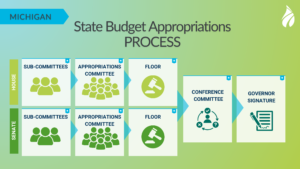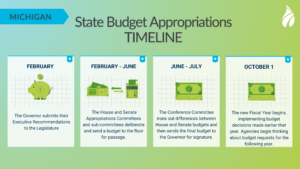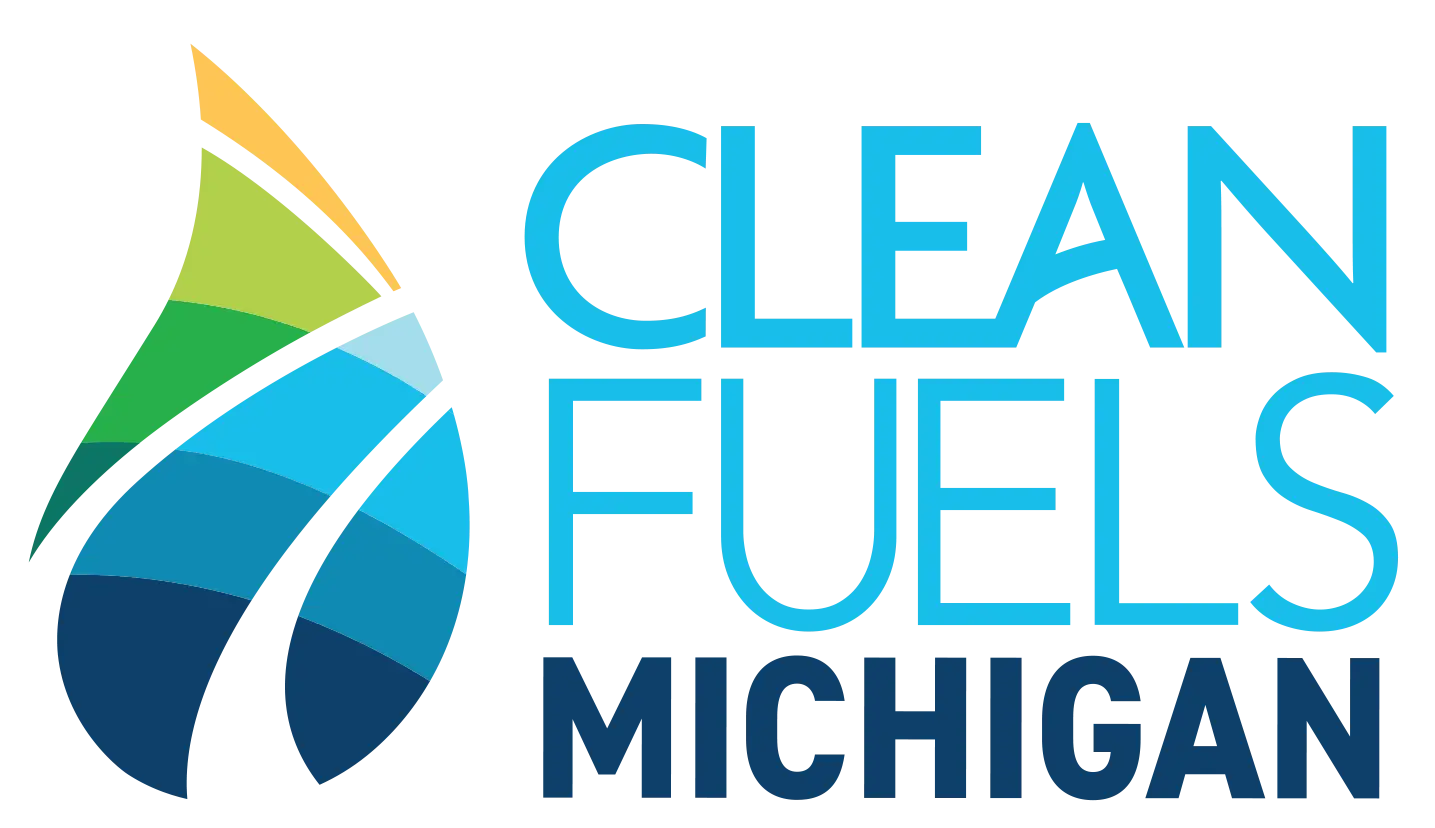Clean Fuels Michigan is a strong advocate for clean mobility budget appropriations. The budget process is a complicated, important policy lever to grow the clean mobility industries and deploy more clean mobility technology in Michigan.
Budget appropriations happen annually in Michigan and follow this basic (simplified) process:

- The Governor announces their Executive Recommendation in early February (2/7/2024 this year)
- From February through June, the House and Senate then deliberate via their respective Appropriations Committee and Appropriations Sub-Committees. Each sub-committee is assigned one or several state agency budgets.
- Once a sub-committee passes a budget, it goes to the Appropriations Committee. Once the Appropriations Committee approves the budgets, they go to the floor in their respective chambers.
- In May, the Consensus Revenue Estimating Conference (CREC) is held, potentially changing budget targets based on economic and revenue forecasts by the Senate Fiscal Agency, the House Fiscal Agency, and the Department of Treasury.
- Once the House and Senate pass their budgets, the Conference Committee convenes to iron out any differences between the House and Senate. The Conference Committee’s decisions then go back to the floor and finally to the Governor’s desk for veto or signature. The budget process typically wraps up in late June or early July.
The State’s fiscal year begins on October 1, so budget appropriations in any given year take effect at the start of the next fiscal year:

Supplemental budgets are mid-year adjustments to the budget and may change spending amounts or add new line items. Often, a supplemental is proposed by the State Budget Office, but the Legislature can also initiate a supplemental. Supplemental appropriations follow the same legislative process as the omnibus budgets and require a majority vote of the House and Senate and the Governor’s signature.
For more information on the budget process, check out the resources stored on the Senate Fiscal Agency website.
What the budget means for clean mobility:
In 2023, we secured $145 million in clean mobility programs in the State Budget. Those funds are split between clean school buses, EV charging stations, state fleet electrification, research, and more. The funding invested last year will support the adoption of cleaner vehicles and the growth of the industry, but we know more is needed.
This year, we hope to work with the Legislature and Governor to support under-invested clean mobility applications, such as:
- Deploying EV charging infrastructure for medium- and heavy-duty fleets and in residential areas and multifamily dwellings.
- Supporting public and private fleets, including implementing the Governor’s Executive Order to transition the state fleet to 100% zero-emission vehicles and to help municipal fleets purchase cleaner vehicles.
- Hydrogen refueling and efforts to reduce emissions from freight in Michigan.
- Making EVs cheaper to purchase for Michigan families.
Thanks to continued advocacy from industry and nonprofits, these priorities are all represented in Governor Whitmer’s Executive Recommendation. Clean Fuels Michigan members can see our detailed policy brief on the Executive Recommendation here.
We look forward to working with our members and partners to ensure that the Fiscal Year 2025 State Budget adequately reflects Michigan’s commitment to advanced, clean mobility technologies.
Reach out to Jane (jmccurry@cleanfuelsmi.org) with any questions about the budget process or Clean Fuels Michigan’s priorities.

